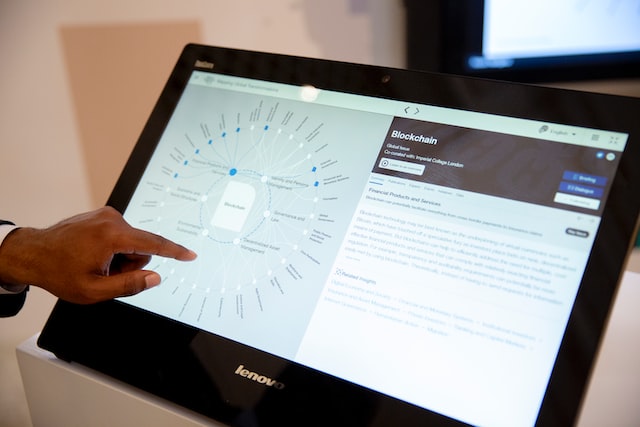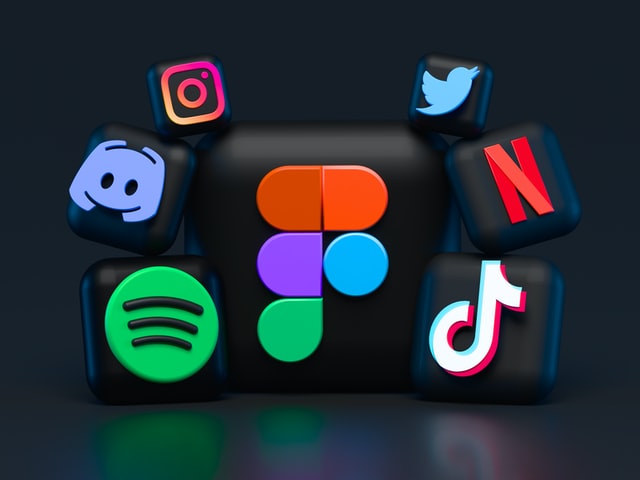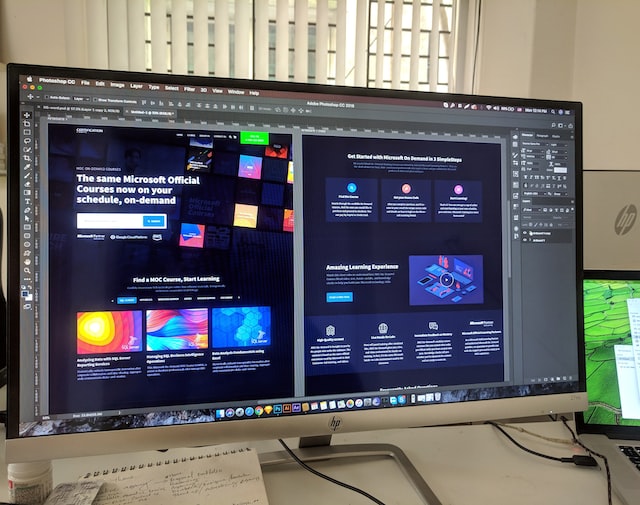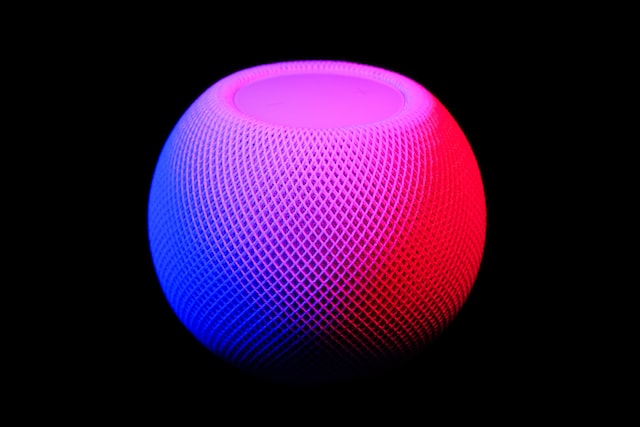There are over 5 billion people around the world using the internet today. People rely on the internet to shop, connect with friends, get entertained, do productive work, and much more. One of the major underlying technologies that have made all these experiences possible is artificial intelligence (AI). Without AI, the internet wouldn’t be as fun and useful as it is today.

In today’s article, we will discuss how AI has improved our experience with the internet. We shall look at some of the practical applications of AI that web-based businesses have integrated into their platforms to boost their users’ experience. Let’s jump in right away!
AI and the internet

The term Artificial Intelligence was first introduced back in the 1950s, before the internet was even a thing. However, the internet has played a huge role in making this technology more popular than it was in its earlier days. Most of the popular use cases of AI have been popularized by internet companies, including Google, Amazon, and Facebook.
With the massive amounts of data that these platforms deal with, it is nearly impossible to organize and utilize this data without leveraging the power of AI. These platforms use a combination of different AI technologies, including machine learning, deep learning, computer vision, and Natural Language Processing, to organize their data.
Eight ways AI has improved the internet
1. More accurate search recommendation

When you search for something like “Restaurants near me” using Google or Bing, these platforms will give you the most relevant results for the different restaurants and food spots within your local area. For instance, if you do this search while in New York City, Google won’t show you restaurants in London because they are not within your reach at that moment.
Such personalized and accurate results are all possible thanks to AI. Google takes into consideration parameters, such as your location, age, the device used to make the search, reviews, and a lot more while determining the results to show for any given search query. Life wouldn’t be the same if we didn’t have tools like Google that provide access to this helpful information within a few seconds.
2. eCommerce product recommendations

Another popular use case of AI is in product recommendations on eCommerce platforms such as Amazon and eBay. When you use Amazon or eBay a couple of times, you will notice that the products shown to you on your homepage are products that you will most likely want to buy. These platforms use AI to learn about user behavior in order to guess the kind of products that you are most likely interested in.
They also use AI to rank products when you try to search for a specific item that you intend to buy. Getting the most personalized and accurate results significantly boosts the experience of using these platforms because it saves us time. With so much data that these platforms have, it would be taking ages to recommend the best products for the different users if it wasn’t for AI.
These platforms earn big from giving users the most accurate product recommendations. Studies show that Amazon attributes 35% of its revenue to its personalized product recommendations. Amazon’s massive amount of data about its users has been key to the unmatched personalized experience that everyone gets while using their platform.
3. Better accessibility

The internet wouldn’t be the same if it weren’t an inclusive place where everyone, irrespective of their physical limitation, gets access to the information they need. With AI, internet-based platforms now have accessibility tools that make it easier for all of us to search and access the information we need.
For instance, you can now search for anything on Google using voice assistants such as Google Assistant, Alexa or Siri. Amazon’s Alexa also makes it easy to shop or add products on your wish list without clicking a button. Most websites have also integrated text-speech tools that convert written text into an audio file that one can listen to instead of reading.
So, if you have issues with your eyes, you can simply listen to the audio version of a blog post instead of straining your eyes to read it. Such features are handy for people with physical limitations to find what they need on the web. The Americans with Disabilities Act (ADA) and other accessibility-related regulations have also played a huge role since they require all web-based businesses to be inclusive by integrating some of the major accessibility tools into their platforms.

We can all agree that one of the Superpowers of Tik Tok is its personalized content recommendations. When you use this platform for a couple of days, you will notice that it keeps getting better at recommending videos that you will most likely want to watch. That is why the average person spends over 26 hours using Tik Tok each month.
All social media platforms, including Tik Tok, Instagram, and Twitter, use sophisticated algorithms that are constantly learning our usage behavior in order to recommend the most appropriate content in our feeds. Of course, this level of personalization makes these platforms very addictive, which might become a problem if not well-delt with.

However, personalization is also beneficial as it enables us to find the content that would take us hours to find if we had to search for it manually.
5. Personalized ads

Running ads have become one of the major sources of revenue for most social media sites, including Facebook, LinkedIn, and Twitter. If it weren’t for ads, we would have to pay monthly or annual fees to use these platforms. The beauty about the ads shown on these platforms is that they are native, so they rarely disrupt the user experience.
These ads are also personalized, ensuring every user is shown ads for products they will most likely buy. Meta generated $114.9 Billion from Ads revenue in 2021. For comparison, TV ads revenue in the US was about $66 Billion. This clearly shows that businesses are significantly relying on these digital platforms to reach their target users.

The level of personalization of these ads is the reason for their high conversion rates as compared to ads on traditional media platforms such as TV, Radio, and Print.
These platforms use advanced machine learning and deep learning algorithms to learn about their users in order to show them the most relevant ads in their feed.
6. Chatbots for customer support

Websites now heavily rely on chatbots as a way to improve the reliability of their customer support. Chatbots are like virtual assistants that you can deploy 24/7 to respond to some of the common questions customers have about your business. They use AI to give users the most appropriate solution for their problems.
Instead of waiting several minutes before getting feedback about your problems, chatbots can give you the solutions within seconds. The only limitation is that chatbots can’t answer questions that are outside the scope of the data they have. However, they are constantly fed with all the necessary data, which improves their reliability over time.
A study by Chatbots Magazine shows that 69% of consumers prefer chatbots because of their ability to offer quick and relevant responses to most simple questions. This percentage will further increase as the AI capabilities of these tools gets better. It also saves businesses vast amounts of money they would otherwise spend on hiring bigger customer support teams.
7. Faster website creation process using AI tools

It is no longer news that platforms like Wix now have tools that you can use to automatically generate a fully functional website with just a few inputs. With Wix ADI, you can generate websites within a few minutes, significantly lowering the costs and time needed to have your websites up and running. Tools like Wix ADI use AI to study millions of sites in order to generate a unique website based on the inputs you provide.

If you want to bring your idea to life much faster, using these tools is the way to go. An AI-generated website will obviously not be perfect, but it gives you a good starting point as compared to starting from scratch. Besides Wix ADI, several other platforms, including Grid and Firedrop, can also be used to automatically generate websites with just a couple of inputs.
8. Responsive web design

Over 54% of website traffic comes from mobile devices. This means most people use mobile browsers and applications to access the internet. Websites need to be optimized for different devices in order to provide the same user experience no matter the device one uses to access them. That’s where responsive design comes in.

With responsive design, a website dynamically changes its layout depending on the platform and device someone uses to access it. The good news is that web developers now have access to AI-powered tools that make it easy to create responsive designs for their websites. Developers no longer have to manually tweak the designs of their sites to make them responsive.
This not only saves time during website development but also improves the user experience of the website visitors.
Threats of AI to the internet

Despite the many improvements that AI has brought to the internet, it also has a couple of threats to the overall experience of internet users. Some of the notable ones include.
1. Abuse personal data

A study by the European Consumer Organization in 2020 showed that 45-60% of Europeans agree that AI will lead to more abuse of personal data. Businesses now see user data as a huge asset that they can use to boost their growth. The unfortunate bit is that some of these businesses are using their user’s information in a way that violates their privacy.

One of the challenges that most social platforms, including Twitter, Instagram, and Facebook, face is handling bad actors that use their platforms to spread fake news. The content ranking algorithms of these platforms are designed to amplify any content that seems interesting to their users.
However, interest is usually measured based on the engagement that a post gets. So, if a fake news post gets thousands of comments and likes a few minutes after its publication, these platforms’ algorithms will show it to more because they will assume it is interesting to most users. This is a huge threat to society because billions rely on these platforms as their source of information.
3. Personalized phishing attacks

Cybercriminals now use AI to personalize their phishing attacks. These attackers usually send personalized emails tailored to specific individual characteristics and circumstances, which increases their likelihood of surrendering private user information. Such attacks wouldn’t be possible if it weren’t for the power of artificial intelligence.

4. Addictive websites can affect our mental health.

People spend over 2 hours and 27 minutes per day on social media. This is all thanks to the powerful algorithms of social media platforms that recommend the most suitable content that users want to consume. However, spending several hours of your day on these sites can cause several mental health issues, including depression and anxiety.
Research shows that people spending more time on social media have higher chances of getting mental health issues than those who spend less time on these platforms. A Lancet study published in 2018 found that people who check Facebook late at night were more likely to feel depressed and unhappy.
Final thoughts
It is obvious that the internet wouldn’t be the same without the power of artificial intelligence. With so much data on the internet, AI has made it much easier to organize and sort it so that users are shown the most relevant information whenever they need it. All the major technology companies, including Google, Apple, Facebook, Microsoft, and Amazon, have invested hugely in AI with the goal of personalizing and improving the user experience of their products.



